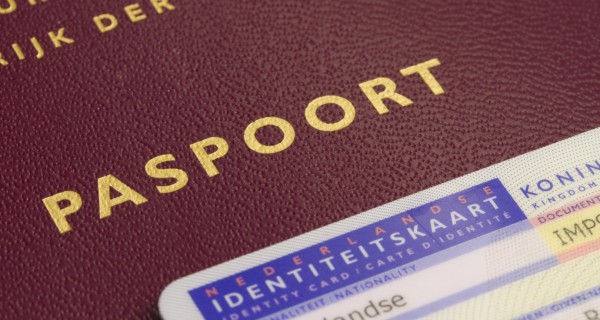Dual citizenship for new Dutch citizens. Ways to retain your current nationality

The Netherlands provides expats of all origins who wish to settle here permanently the possibility to acquire Dutch nationality, granting suffrage for national elections, EU citizenship, full equal treatment rights, and access to the benefits of EU free movement. Acquiring Dutch nationality, however, has an important drawback: you often need to forego your original nationality (or nationalities) if you want to become Dutch. Dual citizenship should not be encouraged, is what Dutch legislators feel, which is often felt as an archaic inconvenience by those who genuinely feel they ought to be able to be Dutch while also having another nationality. In this article I explain the most common ways in which Dutch nationality law still enables those who wish to become Dutch, to retain their original nationality.
Dual citizen by birth or by descent
There are roughly three situations where Dutch nationality law allows for dual citizenship to occur. First of all, if dual citizenship is merely the consequence of birth, acknowledgment or establishment of parenthood, or adoption, there are no rules against it. For example, if a Vietnamese mother and her Dutch husband have a baby, the Dutch laws do not object to the child being a dual citizen. The same holds true if the child is acknowledged by a Dutch father, if a court establishes his paternity, or if a child is adopted by Dutch parents. All these acts need to be finalized within specific timeframes in order to produce Dutch nationality for the child, but, if the child does become Dutch, then it needs not give up any other nationalities it may have, and can grow up a dual citizen.
"Opting" for Dutch citizenship
The second group of people who can realize dual citizenship is made up of those who may acquire Dutch nationality through a procedure called “opting”. "Opting" for citizenship is a little different from the standard naturalization process. While naturalization is open to every long-term resident in the Netherlands under (more or less) the same set of conditions (such as having a clean criminal record, having passed the inburgeringsexamen etc.), the Dutch nationality law in addition creates specific groups of people who have a special right to become Dutch through "opting". A few examples:
- If you were born in the Netherlands, lived here legally throughout your entire childhood, and have never lived in any other country, then you may "opt" to become a Dutch citizen once you turn eighteen years old.
- If you are a former Dutch citizen, you’ve resided in the Netherlands on a legal basis for over a year, and you are over eighteen years old, then you can "opt" to re-acquire Dutch citizenship.
- If you are over the age of 65 and you have been living legally in the Netherlands for at least the last 15 years, then you can also "opt" for Dutch citizenship.
The Dutch Nationality Act sets out many more of these specific groups of people who are allowed to "opt" for Dutch citizenship.
The one major advantage of being allowed to "opt" for Dutch citizenship, rather than just to be entitled to submit a naturalization request, is that the law does not require you to renounce your current nationality when you are "opting" for Dutch citizenship. Opting therefore deserves to be mentioned here.
Naturalization - the general exceptions
If you are not Dutch by birth or because of your descent, and you are not entitled to join priority boarding through the "opting" procedure either, then you can only acquire Dutch citizenship through naturalization. As an applicant for naturalization you will likely be required to renounce your original citizenship. Still, there are a few general exceptions:
- If it is not possible to renounce your nationality because of the laws of your country of origin, then you obviously do not have to renounce your nationality. This exception, for example, applies to the citizens of most southern Mediterranean countries (not Egypt), several countries in central America and a few other countries such as Iran, Taiwan and Yemen. The laws of these states do not enable their citizens to give up these nationalities at all.
- Reversely, if the laws of your country of origin do not allow for dual citizenship at all, you do not need to explicitly renounce your nationality. For example, a Chinese citizen who voluntarily acquires Dutch citizenship automatically loses the Chinese nationality. Since the Netherlands knows this, a Chinese applicant for naturalization does not need to renounce this nationality. Obviously, this exemption does not really help when obtaining dual citizenship is your goal.
- If you are married to a Dutch citizen or if you have a registered partnership with a Dutch citizen on the date of your naturalization, there will be no need to renounce your original citizenship.
- If you were born in the Netherlands and you have your main residence here when you naturalize, then you do not need to renounce your original citizenship.
- If you are accepted in the Netherlands as a refugee, or if you have the nationality of a state the Netherlands does not recognize, then for clear reasons the Dutch government will not require you to approach the government of your country of origin with a request to renounce your nationality.
Individual circumstances
Finally, if you cannot apply to be exempted under any of the above rules - and you must therefore "in principle" renounce your nationalities after naturalizing, you can still claim that your individual circumstances merit an exemption. This could be the case if renouncing your nationality would inevitably result in unreasonable costs for you, for example because you first have to pay off your conscription, if you stand to lose a lot in pension rights, taxes, inheritance etc. Please note that the rules here are very detailed, and place much emphasis on evidence.
Advice
I can imagine all the above rules and exceptions may seem detailed and complex. If you value dual citizenship, have more questions or want someone to handle your applications for you, feel free to send me an e-mail.

Gerelateerde artikelen
- The New Integration Act: its impact on permanent residence and Dutch citizenship applications
- Certain RANOV permit holders can become Dutch citizens after exemption from documentation requirement
- Obtaining dutch citizenship: why it seems impossible for some foreigners. Part 1
- An alternative way of acquiring Dutch citizenship
